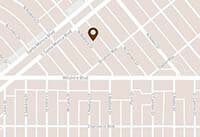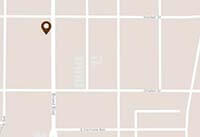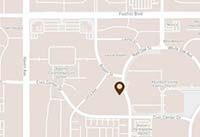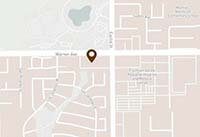Did you know that there are more than 600 muscles in our body?
Each of those muscles has functions that are important for our body to work well. For example, the heart, which is the most hardworking muscle, pumps 2,000 gallons of blood a day throughout our body. Other muscular functions include mobility, stability, posture, circulation, respiration, and even digestion. It’s hard to imagine how our bodies will function fully with weakened muscle functioning or strength.
However, if you are set to go under surgery for weight loss, you should know that aside from losing weight, you will also lose muscle mass or the amount of muscle in your body. Read on why this happens, and how to re-build muscle mass after your weight loss surgery procedure.
Why do we lose muscle mass after weight loss surgery?
As mentioned above, a side effect of weight loss surgery is muscle loss. Why does this happen?
Well, you should know that the muscles in our body make up about 40% of our total weight. Isn’t that a lot? And since muscles make up our weight, they are indeed affected by weight loss procedures.
Also, after weight loss surgery, our body undergoes a catabolic or “breakdown” mode where the body perceives itself to be in a state of constant starvation. Our body fat will then be stored as a precious energy source in a catabolic state.
For its energy needs, our body will then turn to other energy sources such as our muscles. If our muscles are not used, they will be consumed by our bodies as a source of energy, leading to the loss of muscle mass.
Of course, the good news is that even if you do lose muscles, there are ways to build and strengthen them after weight loss surgery.
Building your muscles after weight loss surgery
The importance of building the muscles and regaining the muscle mass of individuals who have gone through weight loss surgery cannot be overemphasized. Muscles are important for the full and healthy functioning of our bodies. Doing the three things below can help you get on track towards building your muscles and regaining muscle mass.
Engage in physical activity.
Indulging in regular exercise after weight loss surgery has many benefits. It may lead to sustained fat loss, and weight loss, while at the same time preventing muscle mass loss.
Remember, though that building strong muscle does not happen overnight. It takes time, consistency, patience, and will to start and sustain the physical activity that has been recommended by your doctor.
With your doctor’s permission, you can start with light strength and resistance exercises six weeks after your weight loss surgery. A good exercise would involve lighter weights or an exercise routine where you can perform a set of eight to twelve repetitions each.
Make sure that you indulge in a variety of exercises that will cover all the muscle groups. But as much as possible, be gentle with your abdominal area as it is still recovering from surgery.
Also, be sure to ease into your exercise routine. Any overexertion may leave you feeling very weak and faint. Doing exercises gradually is better for you to help you achieve your weight loss and muscle build-up goals. As your body adjusts to the level of physical activity, you may go beyond your comfort level and increase the level of exertion with more vigorous exercises. The key is consistency and patience.
If you are having difficulties in starting or maintaining your physical activity after weight loss surgery, you may want to consider asking a friend to be an exercise buddy to get you motivated. You may also consider securing the services of a personal trainer to not only ensure that the weight stays off, but that you get the right amount of exercise to build and strengthen your muscles.
Maintain a proper diet.
A proper diet after weight loss surgery is necessary. In fact, you are only allowed to take in liquids right after the procedure. And the introduction of solid food into your diet will be done gradually and in smaller portions. This is to complement the procedure that you just went through and make sure that weight loss is sustained.
A proper diet is also important in building muscle mass after weight loss surgery. Trying to figure out what to eat, how much to eat, and when to eat is confusing as it is and even more so after weight loss surgery. You need to make sure that your body gets the nutrition it needs and in the right amount to help you build and strengthen your muscles and for their proper function as well. That means you have to be conscious of reaching a comfortable and sustainable macronutrient state.
Food that is rich in lean protein such as lean meats, tofu, beans, and low-fat dairy products are good sources. Regularly consume dark and leafy greens that are easy to digest while making sure to avoid fiber-rich food. Include more good oils and low glycemic carbs in your diet. As much as you can, stick to the diet plan that your doctor, dietitian, or nutritionist recommends.
Be mindful of what you eat. Keep your weight loss and muscle build-up goals in mind as you consume food after surgery. It may help if you keep a journal of the food that you consume daily. You also need to change the way you eat as it is recommended that you eat in smaller portions.
Get plenty of sleep.
Have you been getting the expert-recommended seven to eight hours of sleep each night? If not, make sure you do! After all, you have been through bariatric surgery, which means you need plenty of rest.
Also, sleep is the only time of the day when our muscles are really resting. That means that sleeping time is the only time muscles get to truly recover through the release of human growth hormones.
And of course, sleeping helps restore your energy, giving you the strength to do any scheduled workouts for muscle building.
Re-building muscles is possible after bariatric surgery.
After undergoing weight loss surgery, you need to change a lot of things in how you do things, especially when it comes to your eating habits and the level of physical activity that you indulge in. Be patient with the changes that you are making not just in your diet and level of physical activity but in the choices to reach your weight loss goal. This includes consulting with your doctor regarding your diet and physical activity after weight loss surgery.
You need to strengthen and rebuild not just your muscles but also your resolve to lead a healthier life. No matter how hard, stick to the changes that you have undertaken and let these unfold over time to a healthier and stronger you.
If you need more information on taking care of your muscles and your body after weight loss surgery, we at Davtyan Medical and Weight Loss and Wellness can be there for you. Contact us today for any questions you may have.
We look forward to hearing from you!





